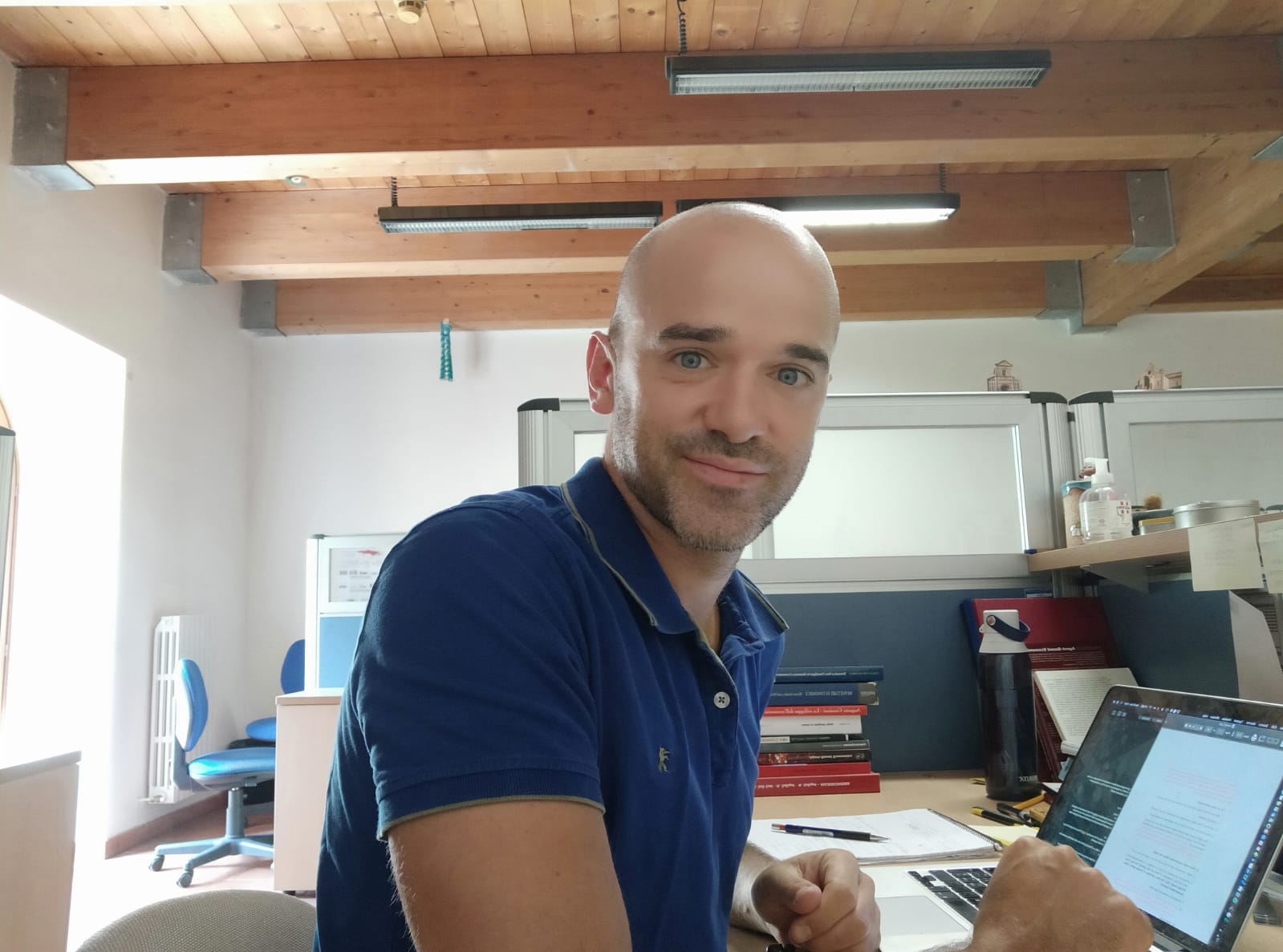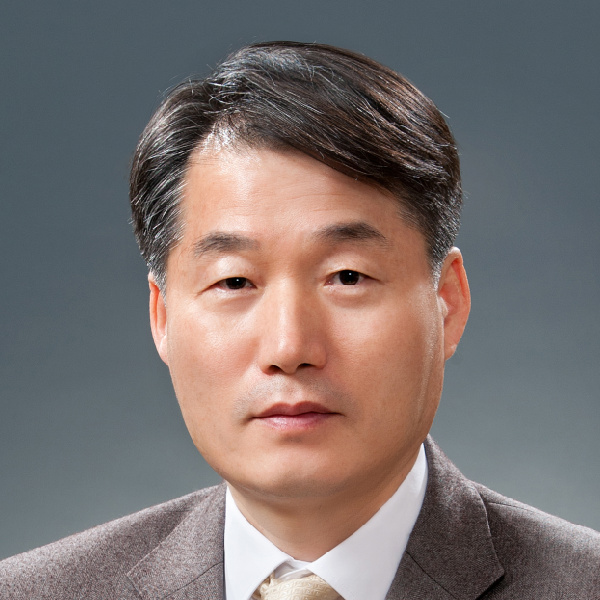Past Recipients of the Kapp Prize
-
The 2022 EAEPE-Kapp Prize went ex aequo to (1) Kerstin Hötte for her article on "Skill transferability and the stability of transition pathways - A learning-based explanation for patterns of diffusion” published in the Journal of Evolutionary Economics and (2) Dany Lang and Ítalo Pedrosa for their article on "To what extent does aggregate leverage determine financial fragility? New insights from an agent-based stock-flow consistent model" published in the Journal of Evolutionary Economics.
Kerstin Hötte
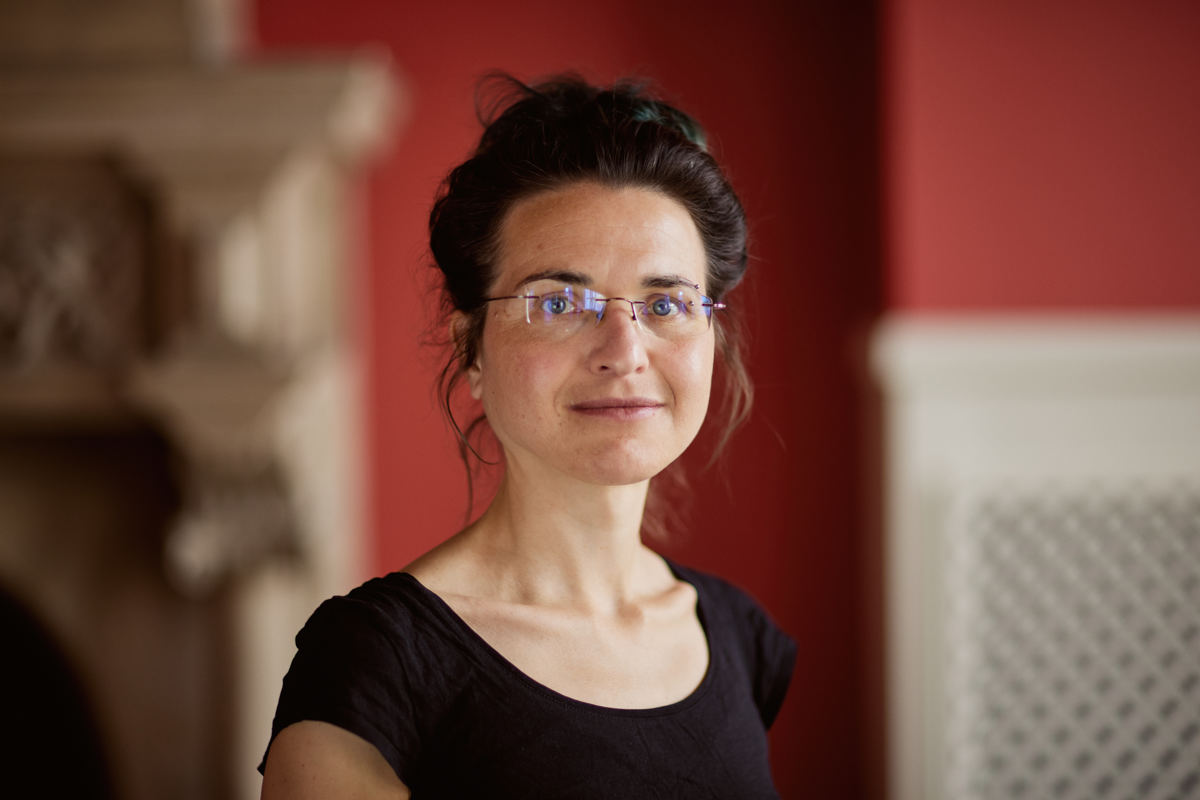
It is a great honour to be one of the recipients of the Kapp Prize 2022 awarded for the paper “Skill transferability and the stability of transition pathways - A learning-based explanation for patterns of diffusion” published in the Journal of Evolutionary Economics.
The paper is one of the outcomes of my PhD thesis and I presented an earlier version on the EAEPE conference 2019 in Warsaw. The work greatly benefited from feedback by the EAEPE community and from incredibly valuable comments by the reviewers.
In the paper, I use a technology-extension of the macroeconomic ABM Eurace@unibi to analyse the impact of knowledge characteristics on pathways of technology transitions. A technology transition is a process when one incumbent technology is replaced by an entrant alternative. The most prominent empirical example of our time is the low-carbon transition when incumbent fossil fuel technologies are replaced by green alternatives.
In the paper, I can show that the process of transition and its economic consequences may be dependent on the transferability of knowledge between the two competing technologies. Intuitively, it is easier to adopt a new technology when the transferability of knowledge between the old and new technology is high. Hence, the new technology initially diffuses very fast. In contrast, if the transferability is low, the economy may be locked in the old technology and it is hard for the new technology to take off.
However, the paper illustrates that there is a trade-off: a high transferability means that it is easy to adopt a new technology but it is also easy for adopters to switch back to the old technology. This may create technological instability which is economically costly as it hampers productivity-enhancing technological specialisation. In other words, the analyses show a trade-off between technological exploration and exploitation arising from the transferability of technological knowledge.
Dany Lang and Ítalo Pedrosa
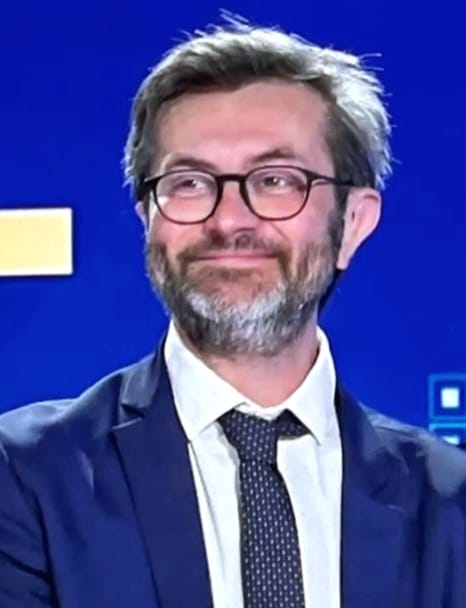

It is a great honor and achievement for Italo Pedrosa and me to receive this prize, and to succeed such prestigious researchers as Joseph Stiglitz and Giovanni Dosi, and all the other beloved colleagues who were attributed the prize over the past years, notably Andrea Roventini, Alberto Botta, Mark Setterfield, Antoine Godin, …
For me, coming from a family background were nobody would study and go to the university, this prize embodies the recognition of a long and most difficult journey outside of the box of conventional economic thinking, and constitutes the reward and accomplishment of years of non-conventional, but meaningful, modelling, combining post-Keynesian, evolutionist and Regulationist views.
Italo and I started this paper while Italo was in the last year of his PhD in Campinas, and got a grant to come to Paris, in order to work with my team and myself. We were both convinced that some of the critiques of Minsky’s’ Financial Instability Hypothesis (FIH), most notably the ones of Toporowski and Lavoie, made sense. And this, even more than the empirical literature finds little support for the FIH. Minsky’s views regarding the link between increased private debt and financial instability had to be completed to consider the possibility of Steindlian dynamics, i.e., that investment by some firms can result in higher profits, fostering the accumulation of liquid assets and leading to an ex-post decrease in the aggregate leverage. Consequently, profit-rate heterogeneity plays a crucial role.
We then constructed an agent-based stock-flow consistent model (AB-SFC), evolutionary and Keynesian-Kaleckian, that adds the missing elements to the FIH. We used it to show how cash flows distribution across firms impact the aggregate leverage ratio-systemic financial fragility relation. As a matter of consequence, systemic financial fragility is a cushioned and imperfect mirror of the aggregate leverage ratio.
This process has been long, and we are more than happy that the result has been published in the Journal of Evolutionary Economics and elected by the EAEPE as a recipient of the Kapp prize. Thank you so much for this recognition of the work, that means a lot to us!
- The Kapp prize was not awarded in 2021
-
The 2020 EAEPE-Kapp Prize went ex aequo to (1) Alberto Botta, Eugenio Caverzasi, Alberto Russo, Mauro Gallegati and Joseph E.Stiglitz for their article on Inequality and finance in a rent economy Journal of Economic Behavior and organization (2019), (2) Claudius Gräbner, Philipp Heimberger, Jakob Kapeller and Bernhard Schütz Structural change in times of increasing openness: assessing path dependency in European economic integration, Journal of Evolutionary Economics (2019), and (3) Francesco Lamperti, Valentina Bosetti, Andrea Roventini and Massimo Tavoni for their article on The public costs of climate-induced financial instability, Nature Climate Change (2019) 9: 829–833.
Alberto Botta, Eugenio Caverzasi, Alberto Russo, Mauro Gallegati and Joseph E.Stiglitz

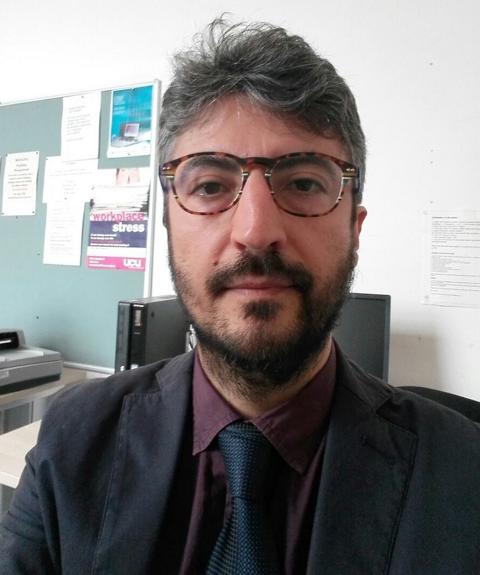
I am very honoured to be a co-recipient, along with my-coauthors Alberto Botta, Eugenio Caverzasi, Mauro Gallegati and Joseph E. Stiglitz, of the 2020 Kapp Prize for the article “Inequality and finance in a rent economy” published in the Journal of Economic Behavior and Organization. Previous versions of the papers have been presented in past conferences and have benefitted a lot from discussions, suggestions, and critics in the stimulating environment of the EAEPE community. In this paper we analyze the interplay between increasing inequality and expanding finance in modern economic systems through the lens of a hybrid Agent-Based Stock-Flow-Consistent macro model. We describe how growing inequality boosts the production of new financial products, where the endogenously created loans are the raw material for this process, to satisfy the appetite for rents. Model simulations show that the expansion of finance through “securitization” results in a more unstable and unequal system. A policy mix including a financial tax on profits and a more progressive tax on labour incomes (with unchanged fiscal stance) can mitigate financial instability and reduce inequality, thus boosting the macroeconomic performance.
Claudius Gräbner, Philipp Heimberger, Jakob Kapeller and Bernhard Schütz
We are grateful and honored for receiving this year’s Kapp prize. There are at least two reasons for why we are especially happy to receive a best paper award from the EAEPE. The first refers to the many intellectually stimulating and socially enjoyable discussions we had at EAEPE conferences over the last couple of years – without which we would not have been able to write the paper in the present form. The second reason is that we are proud about being part of a scientific organisation that not only stands for scientific excellence, but also social inclusiveness. The fact that at EAEPE people not only talk and write about issues of social segregation, polarisation, or discrimination, but that the council and the community take active steps to do something against these calamities is fantastic and makes us particularly proud about having received this award. In the future we will take it as yet another source of motivation to contribute to EAEPE’s exceptional scientific community.
The paper for which we have received the award analyses macroeconomic convergence and divergence patterns in the EU in the context of economic integration, where the latter refers to an increase in economic and financial openness that has triggered a path-dependent development process. Contributing to different strands of literature – including evolutionary economics and complexity economics as well as the emerging growth models literature –, we study the dynamic effects of socio-economic openness. In the process, we come up with a new country taxonomy consisting of core, periphery, finance hubs and catchup-countries. These four country groups have responded in a distinct way to economic integration, which has given rise to path dependent developmental trajectories. Finally, we investigate some of the mechanisms that are behind these trajectories. By highlighting the relevance of technological capabilities, we develop a new measure for the directedness of technological change, showing that one important determinant for the extent to which a country is able to benefit from European economic integration is the ability to accumulate technological capabilities. Given that the accumulation of these capabilities is a highly path dependent process, it is not surprising that in the absence of adequate policy interventions, technological leaders within the EU become stronger, and laggards relatively weaker over time. We conclude the paper with a discussion of what an adequate policy response could look like, and how the institutions in Europe could be made more inclusive, contributing to a much-needed convergence of living standards in the Union.
Francesco Lamperti, Valentina Bosetti, Andrea Roventini and Massimo Tavoni

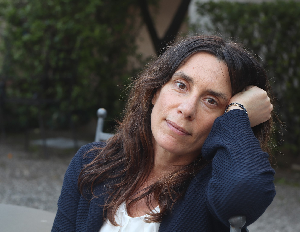


We are extremely honored of being awarded the 2020 Kapp prize for the article “The public costs of climate-induced financial instability” published in Nature Climate Change. Our paper builds on evolutionary theories of economic change to uncover the intricate relationships between growth, the co-evolution of real and financial systems and climate-related risks. In particular we extended the Dystopian Schumpeter meeting Keynes (DSK) macro agent-based model to analyze the impacts of climate change on the stability of the global banking system while quantifying banking crises and the public costs of bailing out banks at risk of insolvency. The paper shows that climate-induced instability of the financial system might significantly increase due to unmitigated emissions, thus amplifying the impacts of the climate on economic growth. Our central results highlight that (i) climate damages significantly reverberate to the financial system, that (ii) the credit channel linking firms and financial institutions is central in exacerbating instabilities and that (iii) financial regulation authorities can address climate risks, for example modifying banks’ capital requirements to account for climate-related effects on firms’ solvency.
EAEPE annual conferences have provided an ideal venue to discuss and put forward a multi-disciplinary heterodox approach and our paper has greatly benefited from comments, critiques and suggestions coming from the EAEPE community. We hope this prize will help consolidate a research agenda on climate risks for the macroeconomy that is urgent, policy-relevant and in need of alternative approaches.
- The 2019 EAEPE-Kapp Prize went ex aequo to Lee, Keun and Lee, Jongho for their article on National innovation systems, economic complexity, and economic growth: country panel analysis using the US patent data, Journal of Evolutionary Economics (2019): 1-32 and Kim, Yun K., Gilberto Tadeu Lima, and Mark Setterfield for their article on Political aspects of household finance: debt, wage bargaining, and macroeconomic (in) stability, Journal of Post Keynesian Economics (2019): 16-38.
|
Keun Lee
|
I have been attending EAEPE conference since the 2013 Krakow Meeting, and am now a permanent member. I feel great and honored that I have finally got this prestigious Prize. Whereas there are many researches measuring national innovation system (NIS) which is a key theoretical concept in Schumpeterian economics, they often use too many variables from heterogenous sources, which make the measurement very demanding, less comparable and less coherent. My prize article (national innovation system, economic complexity and economic growth, Journal of Evolutionary Economics 2019) developed a new, coherent and less-demanding way of measuring NIS of nations around the world, using 5 variables all made up from patent citation data which show the way how knowledge are created, diffused and used in each nation. Each of the 5 variables represent different aspect of innovations in each country, such as concentration, diversification, localization, originality of innovations as well as cycle time of innovations. These 5 variables are also combined into one composite NIS index, so that we may compare and rank countries around world using this index at a time and also investigate their change over time. Further I compare the impact of such measured NIS index and Hidalgo’s measure of economic complexity on economic growth, to find that the NIS is a more robust factor. Given the increasing importance of both innovation and complexity as economic variables, sorting out their relative significance is important academically, and also justifies policy effort by the government to put priority on improve the NIS of nations. These five aspects of NIS also help each country to show its weakness areas to improve upon first. |
|
Jongho Lee
|
I am very pleased that this award has been internationally recognized for our value in terms of evolutionary economics. In particular, winning this award has helped me to focus more on further research. This paper is a study supporting the existing research of Lee (2013) and reveals that there is a difference in economic growth according to the type of national innovation systems. In particular, it is a study that explains how innovation affects economic growth by quantifying the national innovation system index, using U.S. patents which are representative indicators of technological innovation. |
|
Yun Kim, Gilberto Tadeu Lima and Mark Setterfield
|
Mark Setterfield : I was honoured to be a co-recipient (along with my co-authors Yun K. Kim and Gilberto Tadeu Lima) of the 2019 EAEPE Kapp Prize for “Political aspects of household finance: debt, wage bargaining, and macroeconomic (in)stability" (Journal of Post Keynesian Economics, 42, 1, 16-38, 2019). The award marked the culmination of a research project with two colleagues whose intellects and friendship I value highly, making the award itself all the more special. The paper for which we received the Kapp Prize served to warn macroeconomists that just as household indebtedness is affected by increased inequality that can be traced to the diminished bargaining power of workers, so indebtedness itself can adversely affect worker bargaining power and hence inequality. The result, in keeping with the best analytical traditions of evolutionary political economy, is a vicious circle dynamic that, as recent experience attests, can have grave social as well as economic consequences. |
- The 2018 EAEPE-Kapp Prize went to Steffen Murau for his paper on “Shadow money and the public money supply: the impact of the 2007-2009 financial crisis on the monetary system”, Review of International Political Economy, vol. 24 issue 5.
|
Steffen Murau
|
My article, “Shadow money and the public money supply: the impact of the 2007–2009 financial crisis on the monetary system”, was published by the Review of International Political Economy in May 2017 and earned the 2018 EAEPE-Kapp Prize. The paper focuses on shadow banking and shadow money, which are ways of investing that fall outside the scope of financial regulation. I was particularly interested in the impact of the political response to the crisis by the Federal Reserve and the US treasury. I argue that as its root cause, the crisis was connected to new types of credit money that had been developed through financial innovation in the 1970s and 1980s. The crisis was an implosion of these new money forms. To rescue the monetary and financial system, the US authorities had to establish historically unprecedented guarantees for them. In the article, I systematically carve out how the political interventions during the crisis and the regulations after the crisis have changed the US monetary system, and connect this to a broader theory of change in the monetary system. I found that an intervention by US authorities to calm down a run on shadow money during the financial crisis has “profoundly changed” the structure of the US monetary system. Public protection for some types of shadow money has been introduced, and although it officially was just a temporary measure, it is likely there to stay. The crisis has redefined the role of the state in the US monetary system as a guarantor of shadow money. It’s not very common to think about shadow banking as a monetary phenomenon, but a handful of economists, political economists and lawyers interpret it that way. I used these groups’ analytical perspective to systematically describe the changes that happened with shadow money and to develop a theory about the role of politics in that process. A former employee of the US Treasury said that finding a way of politically dealing with shadow money is one of the key challenges of our time. So I hope that my research on the political economy of the shadow money phenomenon can be a small contribution to this. In the financial crisis there was an “implosion” of this shadow money scheme. The collapses of the investment banks Bear Stearns and Lehman Brothers were inherently connected to those parts of their businesses, which were involved in shadow money creation. For those who had invested billions and billions of US dollars into those instruments, this meant that they were about to lose a lot of their wealth. First investors thought that their shadow money was protected, but then the private guarantees turned out much weaker than everybody thought or even as fraud. This was where US authorities stepped in. To tame the run on shadow money, US authorities effectively expanded the public protection for bank deposits to some shadow money forms, in particular money market fund shares and repurchase agreements. They were first very hesitant, so the crisis worsened. Only when they gave a full guarantee after the Lehman bankruptcy, the Federal Reserve and the US Treasury managed to stop the run. |
- The 2017 EAEPE-Kapp Prize is shared between Franklin Obeng-Odoom for his paper on "Marketising the commons in Africa: the case of Ghana", Review of Social Economy and Toru Yamamori for his paper on"The concept of need in Adam Smith", Cambridge Journal of Economics.
|
Franklin Obeng-Odoom
|
Winning the Kapp Prize has deepened my interest in the work of KW Kapp. Not only have I studied more of his work, I have also encouraged others to study him. I am currently supervising postgraduate research on social costs. These studies engage Kapp, but they also try to extend his work. My award-winning paper was on the commons, so I was encouraged that EAEPE supports this attempt to expand and further develop Kapp's magnificent work. I have since substantially built on that work into a forthcoming book: The Commons in an Age of Uncertainty: Decolonizing Economy, Society, and Environment (University of Toronto Press, 2021) https://utorontopress.com/ca/the-commons-in-an-age-of-uncertainty-2 For me, the award also strongly suggests that, perhaps, EAEPE is also welcoming new ways of challenging orthodoxy and offering alternatives. |
|
Toru Yamamori
|
I feel tremendously honoured to have been awarded the 2017 EAEPE Kapp prize for my paper ‘The concept of need in Adam Smith’ (Cambridge Journal of Economics, 41 (2)). Much in the spirit of the values embodied in clause 3.7 of the EAEPE Constitution, my paper sought to unravel the ways in which we construe real needs, identify and evaluate them. Starting with a delineation of the limits and possibilities of need in Adam Smith, I went on to outline the relevance of the Smithian ontology and epistemology of need for contemporary heterodox theory. The paper was a first attempt in a much broader investigation of the concept of need in economics. Major guideposts for this project have been the works of Karl William Kapp, titular of the prize. Moreover, Tony Lawson, whose work was recognised with the samprize in 1993, as well as Len Doyal and Ian Gough, whose work, in turn, obtained another one of EAEPE’s accolades, the Myrdal prize, have all been my mentors on this journey. To have had my work recognised with the EAEPE Kapp prize has instilled in me renewed confidence about the value of this research and given me the impetus to publish three further papers, all of which (including one on Kapp) found their germination in the concluding paragraphs of the Smith paper. Both professionally and intellectually the prize has provided invaluable encouragement. I am now working on a book that will unite all four papers in a single volume.
|
- The 2016 EAEPE-Kapp Prize is shared between Agnès Labrousse for her paper on "Not by technique alone. A methodological comparison of development analysis with Esther Duflo and Elinor Ostrom", Journal of Institutional Economics and Alessandro Caiani, Antoine Godin, Stefano Lucarelli for their paper on "Innovation and finance: a stock flow consistent analysis of great surges of development", Journal of Evolutionary Economics.
|
Agnès Labrousse
|
My contribution compares the research strategy and social philosophy of the two female “Nobel” Prizes winners: Elinor Ostrom and Esther Duflo (at the time “just” a Clark medal). It looks beyond the persuasive claim of scientificity and neutrality of the randomistas such as Duflo to show how their trendy use of randomized controlled trials is often arbitrary and unreliable in practice and how it can prevent us from grasping complex social processes. Duflo’s relative indifference to theory, history and context contrasts with the way Ostrom theorizes the diversity and historical specificity of institutions, social actors and biophysical environments. My paper shows how Ostrom’s methodological pluralism and adaptive complex systems analysis is a relevant antidote to Duflo’s methodological monism and piecemeal analysis. It also compares Ostrom’s interdisciplinarity with Duflo’s new economic imperialism, which involves applying the RCT technical grammar and mainstream preconceptions to other domains in social sciences. Pluralism, interdisciplinarity, institutions, complexity: all this is at the very heart of EAEPE!
Being awarded the Kapp Prize was a wonderful surprise. It lifted my poor self-confidence as both a female and a heterodox economist. Such an international recognition is crucial for political economists: it legitimates doing economics from the margins. I only regret that at the time, the prize was merely announced in the happy hubbub of the gala dinner, without effective publicity. This might explain why my article – despite being also awarded the Ostrom prize by WINIR in a similar manner – is incredibly less cited than my articles on associated topics in French! It is a huge improvement that EAEPE has initiated in 2018 a special session where EAEPE prize winners present their work, and so is this webpage! |
|
Alessandro Caiani, Antoine Godin, Stefano Lucarelli
|
Stefano Lucarelli: Receiving the EAEPE Kapp prize was a great satisfaction of which I am very proud. I also think it has greatly strengthened my CV and helped me and my co-authors to put the attention of other colleagues on our research about innovation and finance. The paper that received the award represents for me the culmination of a long research whose goal was to present for the first time a stock consistent macroeconomic model describing the consequences of innovative dynamics on real and financial variables. Above all, the essential role of finance in fostering innovation and its interaction with the real economy is underlined. The economic policy consequences of these analyses are very important indeed, and work on this should be done to refocus attention on the role of the financial system in contributing to structural economic dynamics, stressing the importance of coordinating expansionary monetary policies and real industrial policies. |
- The 2015 EAEPE-Kapp Prize winners are Angelo Fusari and the late Angelo Reati for their article “Endogenizing technical change: Uncertainty, profits, entrepreneurship. A long-term view of sectoral dynamics”, Structural Change and Economic Dynamics, 24 (2013)
|
Aneglo Fusari and Aneglo Reati
|
The 2014 EAEPE-Kapp Prize was awarded to Peter Ho for his 2013 paper, "In Defense of endogenous, spontaneously ordered development: Institutional functionalism and Chinese property rights", The Journal of Peasant Studies Vol. 40 (6): 1087–1118.
The 2013 the EAEPE-Kapp Prize was awarded to Jakob Kapeller, Bernhard Schütz and Stefan Steinerberger for their 2013 article, 'The Impossibility of Rational Consumer Choice: A Problem and Its Solution', Journal of Evolutionary Economics, 23(1): 39-60.
In 2012 the EAEPE-Kapp Prize was awarded to Guglielmo Forges Davanzati for his 2011 article, 'Income Distribution and Crisis in a Marxian Schema of the Monetary Circuit', International Journal of Political Economy, 40(3): 33-49.
In 2011 the EAEPE Prize was awarded to Philip O'Hara for his 2009 article, 'The Political Economy of Climate Change, Ecological Distribution and Uneven Development', Ecological Economics, 69(2): 223-234.
In 2010 the Kapp Prize was awared to George Liagouras for his 2009 article, 'Socio-Economic Evolution and Darwinism in Thorstein Veblen: A Critical Appraisal', Cambridge Journal of Economics, 33(6): 1047-1064.
In 2009 the Kapp Prize winner was Edward Nik-Khah for his 2008 article, 'A Tale of Two Auctions', Journal of Institutional Economics, 4(1): 73-97.
In 2008 the Kapp Prize was awarded to Xosé H. Vázquez for his 2006 article, 'Eclectic Explanation of Shopfloor Control Using Efficiency and Power Theories', Organization Studies, 27(10): 1421-1446.
In 2007 the Kapp Prize was awarded to Eyüp Özveren for his 2007 article, 'Where Disciplinary Boundaries Blur: The Environmental Dimension of Institutional Economics', in Stravos Ioannides and Klaus Nielsen (eds), Economics and the Social Sciences: Boundaries, Interaction and Integration, Cheltenham: Edward Elgar.
In 2006 the Kapp Prize was awarded jointly to Otto Steiger for his 2006 article, 'Property Economics versus New Institutional Economics: Alternative Foundations of How to Trigger Economic Development', Journal of Economic Issues, 40(1): 183-208, and to Guido Buenstorf and Johann Peter Murmann for their 2005 article, 'Ernst Abbe’s Scientific Management Theoretical Insights from Ninetieth-Century Dynamics Capabilities Approach', Industrial and Corporate Change, 14(4): 543-578.
In 2005 the Kapp Prize was not awarded.
In 2004 the Kapp Prize was not awarded.
In 2003 the Kapp Prize was awarded to Yval Millo and Donald MacKenzie for their 2003 article, 'Constructing a Market, Performing Theory: The Historical Sociology of a Financial Derivatives Exchange', American Journal of Sociology, 109(1): 107-145.
In 2002 the Kapp Prize was awarded Yadira Gonzalez de Lara for her 2002 article, 'Institutions for Contract Enforcement and Risk Sharing: From Debt to Equity in Late Medieval Venice', European Review of Economic History, 6(2): 257-262.
In 2001 the Kapp Prize was awarded jointly to Matthias Klaes for his 2000 article, 'The Birth of the Concept of Transaction Costs: Issues and Controversies', Industrial and Corporate Change, 9(4): 567-593, and to John Finch and Robert McMaster for their article, 'On Categorical Variables and Non-Parametric Statistical Inference in the Pursuit of Causal Explanations', later published in Cambridge Journal of Economics, 26(6): 753-772.
In 2000 the Kapp Prize was Stephen Dunn for his 2000 article, 'Wither Post Keynesianism?', Journal of Post Keynesian Economics,22(3): 343-364.
In 1999 the Kapp Prize was not awarded.
In 1998 the Kapp Prize was not awarded.
In 1997 the Kapp Prize was awarded jointly to Elias L. Khalil for his 1997 article, 'Buridan's Ass, Risk, Uncertainty and Self-Competition: A Theory of Enrepreneurship', Kyklos, 50(2): 147-163, and to Ugo Pagano for his article, 'Transition and the Speciation of the Japanese Model', later published in Oliver Fabel, Francesco Farina and Lionnello F. Punzo (2000) (eds), European Economies in Transition: A Search of a New Growth Path, Basingstoke: Macmillan.
In 1996 the Kapp Prize was awarded to Bart Nooteboom for his article, 'Towards a Cognitive Theory of the Firm: Issues and a Logic of Change'.
In 1995 the Kapp Prize was not awarded.
In 1994 the Kapp Prize was awarded to Giovanni Dosi, Luigi Marengo and Marco Valente for their article, 'Norms as Emergent Properties of Adaptive Learning', later published in 1999 as 'Norms as Emergent Properties of Adaptive Learning: The Case of Economic Routines', Journal of Evolutionary Economics, 9(1): 5-26.
In 1993 the Kapp Prize was awarded to Tony Lawson for his article, 'A Realist Perspective on Contemporary "Economic Theory"', later published in 1995, Journal of Economic Issues, 29(1): 1-32.
In 1992 the inaugural Kapp Prize was awarded to Ulrich Witt for his article, 'Innovation, Externalities and the Indeterminateness of Progress', later published in 1996 as 'Innovation, Externalities and the Problem of Economic Progress', Public Choice, 89(1-2):113-130.
Please note that the submission rules for the Kapp Prize have changed over time.

